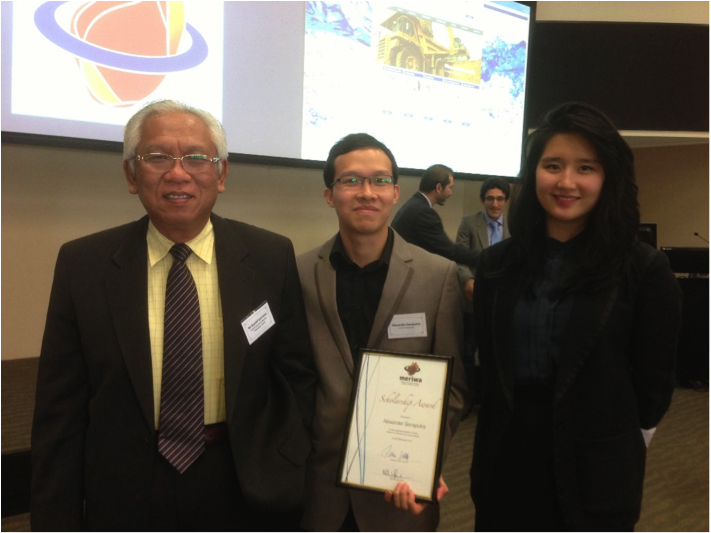In my last article, which is the first of the series, I discussed about the potential sources of funding for postgraduate studies in Australia. This time, I want to talk about an equally (if not more) important issue: finding the right supervisor (or professor).
Of course, supervisor(s) is very important for master/PhD research students as they will be reliant upon their supervisors’ help throughout their projects. This is especially true in the beginning of their studies when they have to learn a lot of things before they can be more independent in their research. Of course, this may not be applicable for postgraduate coursework student whose times are primarily spent in the class.
I considered myself lucky to be having the ‘right’ supervisors during my PhD years. They are the main reason why I got so many achievements that I may not have if I am not supervised by them. On the other hand, I have seen my PhD fellows that did not have a chance to develop their full potential or worse, did not eventually complete their studies simply because they did not have the ‘right’ supervisors to help them.

School vs. supervisor
Most (if not all) of students choose school over supervisor. This is very logical, good school (or university) provides good academic staffs. However, keep in mind that every university has different research strength area. There are some universities that only have an overall rank to be above average, but they have very good research groups that focus on very specific subjects. Therefore, you may also want your mindset not to be locked by the university’s rank/brand.
Another important thing about choosing potential supervisors (who may be able to give you scholarship) is about his/her quality of work. As students, we definitely want to learn from the best of the bests. The quality of their work can be known from their publications and nowadays, many campuses in Indonesia have access to scientific database such as Science Direct, Springer Link, etc – where you can find examples of their publications. If your knowledge is not up to the par to understand their work, you can always ask your lecturer in Indonesia about their professional opinion.
Right personality
Sometimes we think that the smarter our supervisor is, the more we can learn from him/her. It is often forgotten that learning is a two-way process. How much you can learn during your study also depends on how much time and effort your supervisor wants to spend to meet your needs. For example, my principal PhD supervisor says to me that he will never supervise more than 2 PhD students at the same time, simply because he wants to spend enough time for each of them. We must also remember that students are required to graduate on-time. I have seen PhD students who takes so long to complete their studies because their supervisors are too busy to correct their theses.
Those mentioned above are things you cannot find out from their publications. However, you can always try different way to find out. You can check in the faculty website if there is any Indonesian studying there. If there is any, you can ask them who is the potential supervisor you’d better go with (or better not go with). When I was about to start my PhD study, I could not find any Indonesian studying under my supervisor so I cannot get any insider information. Nevertheless, I developed a rather intensive communication with my PhD supervisor about different things: from scholarship process to the project I would work on. His prompt, polite, encouraging, insightful and detailed answers convinced me that he would be a good supervisor for me – considering that I am not that smart so I am thinking that I must have a good teacher. Unfortunately, during this time he had to leave his job and transferred me to his colleagues. Fortunately, his colleagues turned out to be two best supervisors I have been working with.
It requires a long lasing commitment to complete a PhD degree, averagely 3.5-4.5 years in Australia. Therefore, it is important make sure that each day, during those years, is spent with a mentor(s) who can help you not only scientifically but also emotionally. Once you have them on your side, the sky is the limit. By reading my first article and this second article, I hope you can get an idea about how to find a scholarship as well as how to find the right supervisor.
Stay tuned for the next article where I will write about how I deal with my poor English!
Photo supplied by author









Thank you for sharing. Your both articles are really helpful.
Halo bro, ini -> You can check in the faculty website if there is any Indonesian studying there. If there is any, you can ask them who is the potential supervisor you’d better go with (or better not go with) <- maaf yah kalau saya sotoy, cuma kok kata2 itu seolah2 ngisyaratkan kalau ikatan mahasiswa internasional sama pembimbing jadi berdasarkan budaya asal? Bukannya lebih ke individu ya? Apalagi tempat macam Australia yang udah puluhan tahun jadi negara pelajar mancanegara, meskipun banyak akademia yang 'rasis', dalam konteks akademik rasa2nya aneh kalau 2014 masih mikirin asal budaya
maah gan cuma mau ikut nimbrung,
Kalau menurut saya pernyataan itu sama sekali tidak menyinggung permasalah ras. Tapi membahas tentang mencari informasi pembimbing yang baik (bisa diajak diskusi, kepribadiannya baik, suka menolong, dll). Karena kriteria yang seperti ini bisa diketahui hanya oleh orang-orang yang dekat atau pernah kenal. Dalam hal ini sebaiknya bertanya kepada mahasiswa indonesia yang studi di sana karena standar kriteria ini mungkin lebih sesuai kalau di tanyakan terhadap mahasiswa dengan background budaya yang sama.